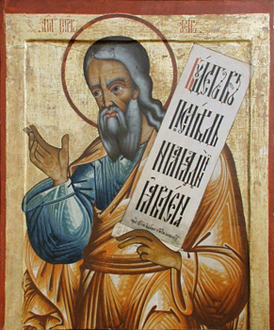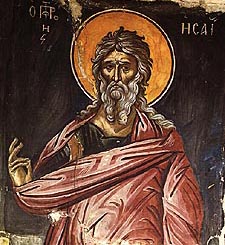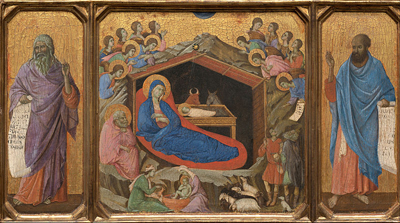For Sunday November 29, 2020
Lectionary Readings (Revised Common Lectionary, Year B)
Isaiah 64:1-9
Psalm 80:1-7, 17-19
1 Corinthians 1:3-9
Mark 13:24-37
If someone had told me back in February that we would still be in the thick of the Covid pandemic nine months later — wearing masks, staying away from our loved ones, “attending” church over Zoom or YouTube, and watching in horror as the global death toll rises — I would not have believed them. But here we still are. On the verge of another liturgical season and a new Church year, here we still are. Bewildered, grieving, fearful, and exhausted. Haunted (if we’re honest), by the question “good Christians” are often afraid to ask: Where is God?
Luckily for us, the Biblical writers do not share our reticence about naming and lamenting God’s hiddenness. "O that you would tear open the heavens and come down," cries Isaiah in our Old Testament reading for this first Sunday of the season. "Restore us, O Lord of hosts; let your face shine, that we may be saved," pleads the Psalmist. "The sun will be darkened, and the moon will not give its light, and the stars will fall from heaven, and the powers in the heavens will be shaken," says Jesus in Mark's Gospel, describing a state of godless catastrophe I wish I didn't recognize in the world around me.
What an odd way to usher in Advent. What a bizarre way to shout, “Happy New Year, Church!” Is this really where we’re supposed to begin? By naming the elephant in the room so explicitly? So baldly?
Like some of you, I didn't grow up observing Advent. Since my childhood church didn't follow the liturgical calendar, my family went straight from Thanksgiving turkeys and pumpkin pies to Christmas trees and "Jingle Bells" — one consumer feeding frenzy pressing hard into the next. It’s only in the past few years that I have come to value what Nora Gallagher calls the "counterweight" of liturgical time. "One time set against another." It’s only recently that I have embraced the stark, hard-edged gifts Advent provides. This year in particular, I believe we need these gifts desperately.
According to the week's readings, we enter this first season of the Christian New Year — if we dare enter it at all — in lamentation. Eschewing all forms of denial, polite piety, and cheap cheer, we allow the radical honesty of Scripture to make us honest, too. "How long will you be angry with your people's prayers?" asks the Psalmist in desperation. "Because you hid yourself we transgressed," cries Isaiah. During Advent, we stop posturing and pretending. We quit trying to make God’s hiddenness okay. We shed our greeting card assumptions about the Divine. We get real.
 |
"Our world is not okay," is what these Advent readings declare in stark, unflinching terms. God's apparent absence is not fine — it hurts. It hurts so much we can barely breathe from the agony of it. We are surrounded by evil and suffering, we're not sure our faith can endure what our eyes reluctantly witness each day, and though we long for a Savior to rend the heavens and come down, the very ferocity of that longing is wearying our souls. Hope itself has become a grind.
The first gift of Advent is the permission to tell the truth, even if that truth is laced with sorrow. We are invited to describe life "on earth as it is," and not as we mistakenly assume our religion requires us to render it. Into our surrounding cultures of denial and spin, apathy and hedonism, we are called to speak the whole truth: we need God. We need God to show up. We need God to stay. We need God to love, hold, deliver, and restore us. We were created for intimacy with a just, gracious, and profoundly compassionate Savior, and when that intimacy is missing, we suffer.
The second gift of the season is less a "gift" than a discipline. It is the discipline of waiting. During Advent, we live with quiet anticipation in the "not yet." We stop rushing, and decide to call sacred what is yet in-process and unformed. As Paul puts it in this week's reading from 1st Corinthians, we "wait for the revealing of our Lord Jesus Christ."
This is no easy task in today’s world, which applauds arrivals, finish lines, shortcuts, and end products, far more than it does the meandering journey or odd way station. Eugene Peterson calls the Christian life "a long obedience in the same direction," and I don't think we can get more counter-cultural than that. If the secular world speeds past darkness to the safe certainty of light, then Advent reminds us that necessary things — things worth waiting for — happen in the soft, fertile dark. Next spring's seeds break open in dark winter soil. God's Spirit hovers over dark water, preparing to create worlds. The child we yearn for grows in the deep darkness of the womb.
 |
I wonder if years from now, when we look back on these bleak months of the pandemic, we will recognize these days of waiting — waiting for a vaccine, waiting for a cure, waiting for a return to our normal social lives — as paradoxical treasures. Learning to wait for God is akin to learning a new form of physical exercise. Waiting is a muscle, and it has to be worked, toned, sculpted, and shaped over a sustained period of time. To sit and wait for God — not in bitterness, not with cynicism, not in fake and frozen piety — is serious spiritual work. But it is the invitation of Advent. To wait.
Thirdly, Advent prepares us for the God who is coming — a God who will turn out to be very different from the one we expect and maybe even hope to find.
I am always struck by the difference between the Biblical passages we read during Advent, and the ones we shift to when Christmas finally arrives. This week, Isaiah longs for a Very Big God to do Very Big Things. Recalling the history of the Exodus, he asks God to once again do "awesome deeds" — deeds that will make the mountains quake and the nations tremble. Come to us as fire, he pleads. Fire that kindles and burns, fire that sets the world boiling. Who among us has not prayed such prayers? For the past nine months, my prayers have been as outsized as Isaiah's: Bring an end to the pandemic. Protect the most vulnerable. Strengthen healthcare workers. Help the unemployed. Spare the children. Save the world!
But why stop there? Why not go further? Eradicate all illness. Clean up the mess in Washington D.C. End world hunger. Root out corruption. Destroy systemic racism. Thwart corporate greed. Protect this wounded planet before we ravage it past saving, and most of all shield us, O Lord, from our sinful, self-destructive selves. "O that you would tear open the heavens and come down!"
I don't believe I can — or should — stop praying these prayers. God is big, and when I come to God in prayer, dreaming of a just and wholly redeemed world, I know I'm dreaming a tiny version of God's own dream. But during Advent, I am asked to prepare myself for something else. Someone else. Someone so unexpected and so small, I'm tempted to either laugh or cry at the thought of him. The world is falling apart, my heart is exhausted, people are dying, and God chooses to send me … a baby?
 |
In his sermon entitled, "The Face in the Sky," Frederick Buechner describes the Incarnation as a kind of scandal — one that requires us to ponder the shocking unpredictability of God:
"Those who believe in God can never in a way be sure of him again. Once they have seen him in the stable, they can never be sure where he will appear or to what lengths he will go or to what ludicrous depths of self-humiliation he will descend in his wild pursuit of humankind. If holiness and the awful power and majesty of God were present in this least auspicious of all events, this birth of a peasant's child, then there is no place or time so lowly and earthbound but that holiness can be present there too."
What are we to make of this? The God who is limitless chooses limits: one womb, one backwater town, one bygone century, one brief life, one agonizing death. The salvation we long for is not the salvation he brings. These are not easy or comfortable truths to accept; they're truths to wrestle with hard and long. Truths to weep over. Truths to receive with gentleness and care.
Come Christmas, I want to be ready to receive God as God is. Not as I might wish God to be, or insist God become. Advent is my time to prepare for the Savior who is.
So. Here we are. Exactly where we need to be. Here we are, wrestling with the brokenness of the world and the hiddenness of our God. Here we are, voicing our laments and registering our yearnings. Here we are, waiting. Here we are, preparing ourselves for the God who is coming.
“Oh, that you would tear the heavens and come down.” This is an honest prayer, and we need not fear it. It's okay to pray into the silence, the hiddenness, and the absence. It's okay to struggle with Advent and its complicated gifts.
So pray and wait. Wait and pray. As much as you can, be patient. Be still. Hope fiercely. Deep in the gathering dark, something tender is forming. Something beautiful — something for the world's saving — waits to be born.
Debie Thomas: debie.thomas1@gmail.com
Image credits: (1) Wikipedia.org; (2) Orthodox Church in America; and (3) National Gallery of Art.





